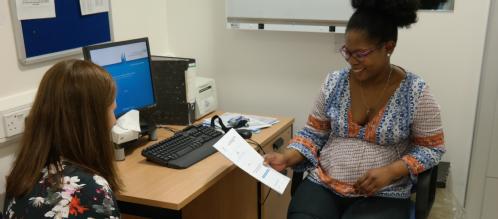Seed funding to develop full funding application for a study exploring the extent to which a lay-designed Participant Information Sheet can improve the consent process for research participants.

Investigators: James Ferguson (Consultant Hepatologist, QEHB), Dr Greg Moorlock (University of Warwick), Professor Heather Draper (University of Warwick), Professor Melanie Calvert (University of Birmingham), Eric Deeson (lay co-applicant, Liver Unit PPI Panel Chair)
 Research participants are given Participant Information Sheets (PISs) when invited to participate in research. These provide the information participants are deemed to require in order for them to make informed decisions. There are guidelines for developing PISs and the types of information that must be provided to participants and research ethics committees review PISs to ensure that these standards are met. There is, however, uncertainty that the guidelines reflect what participants want to know. There is evidence to suggest that PISs, and accompanying consent processes, often fail to result in research participants being fully informed. If PISs do not inform participants, then they are not fit for purpose. In an attempt to make PISs more suitable for patients, some researchers ask Patient and Public Involvement (PPI) groups to review PISs before they undergo formal research ethics review. Lay input in PISs has been shown to benefit participant understanding.
Research participants are given Participant Information Sheets (PISs) when invited to participate in research. These provide the information participants are deemed to require in order for them to make informed decisions. There are guidelines for developing PISs and the types of information that must be provided to participants and research ethics committees review PISs to ensure that these standards are met. There is, however, uncertainty that the guidelines reflect what participants want to know. There is evidence to suggest that PISs, and accompanying consent processes, often fail to result in research participants being fully informed. If PISs do not inform participants, then they are not fit for purpose. In an attempt to make PISs more suitable for patients, some researchers ask Patient and Public Involvement (PPI) groups to review PISs before they undergo formal research ethics review. Lay input in PISs has been shown to benefit participant understanding.
This project has arisen from such work undertaken by Eric Deeson, in his capacity as chair of the Liver Unit Patient and Public Involvement group at the QE Hospital Birmingham and in various other contexts. In the experience of the Liver Unit PPI group, PISs often fall short of conveying information in a way that can engage a diverse patient population. Eric has devised, with input from PPI fellows and many others, a shorter, more engaging and readable PIS style which has received widespread approval. This approach could enhance the quality of consent, but requires further research to establish its effectiveness. This project will produce a full funding application in order to explore the effectiveness of this style of PIS.
Outputs
Our output will be a grant application for the fully designed research study.
Further Information
This work has been funded by the generous support of the Queen Elizabeth Hospital Birmingham Charity. Total value of grant: £17,324.
For more information about this research, please feel free to contact us:
Greg Moorlock – g dot moorlock at warwick dot ac dot uk +44 (0)2476 151592
